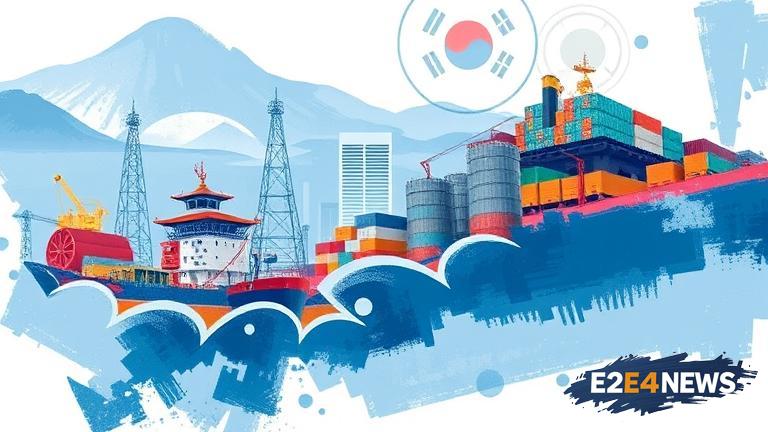South Korea, once hailed as an economic miracle, is now grappling with a multitude of challenges that threaten its long-term sustainability. The country’s economy, which has been driven by exports and manufacturing, is slowing down, with the Bank of Korea predicting a mere 2.2% growth rate for 2023. This slowdown is attributed to a combination of factors, including a decline in global demand, rising trade tensions, and a strong won. Furthermore, South Korea’s debt-to-GDP ratio has been increasing, reaching a staggering 40% in 2022, which has raised concerns about the country’s fiscal sustainability. The rapidly aging population is another significant challenge, with the proportion of people aged 65 and older expected to reach 30% by 2025. This demographic shift will put a strain on the country’s pension and healthcare systems, making it essential for the government to implement reforms to ensure their sustainability. In addition, the country’s labor market is facing significant challenges, including a rising unemployment rate, particularly among young people, and a shortage of skilled workers in key industries. To address these challenges, the government has announced plans to increase investment in emerging technologies, such as artificial intelligence and renewable energy, and to promote innovation and entrepreneurship. The government has also pledged to implement labor market reforms, including increasing the minimum wage and improving working conditions, to make the economy more inclusive and equitable. However, these efforts will require significant investment and coordination between the government, businesses, and civil society. The country’s education system will also need to be overhauled to provide students with the skills and training needed to succeed in an increasingly automated and digital economy. Moreover, the government will need to address the issue of income inequality, which has been rising in recent years, by implementing policies to reduce the wealth gap and promote social mobility. The country’s trade relationships will also need to be re-evaluated, particularly in light of the ongoing trade tensions with the US and China. South Korea will need to diversify its trade relationships and reduce its dependence on a few key markets. The government has also announced plans to increase investment in research and development, with the aim of becoming a leading player in the global innovation economy. However, this will require significant investment in infrastructure, including high-speed internet and transportation networks. The country’s energy sector will also need to be transformed, with a shift towards renewable energy sources and a reduction in dependence on fossil fuels. The government has set a target of generating 20% of the country’s energy from renewable sources by 2030. To achieve this goal, the government will need to invest in renewable energy infrastructure, including solar and wind power, and promote the development of green technologies. The country’s transportation sector will also need to be overhauled, with a shift towards electric and hybrid vehicles, and a reduction in dependence on fossil fuels. The government has announced plans to invest in high-speed rail networks and promote the development of green transportation technologies. In conclusion, South Korea faces significant economic challenges, but with the right policies and investments, the country can navigate the path to sustainable growth and become a leading player in the global economy. The government will need to work closely with businesses, civil society, and international partners to address these challenges and ensure a bright future for the country. The country’s economic future will depend on its ability to innovate, adapt, and evolve in response to changing global circumstances. With the right policies and investments, South Korea can overcome its economic challenges and achieve sustainable growth and prosperity. The country’s economic success will have significant implications for the region and the world, and it is essential that the government and businesses work together to ensure a positive outcome. The future of South Korea’s economy will be shaped by its ability to respond to global challenges and opportunities, and it is essential that the country remains adaptable and innovative in the face of changing circumstances.





